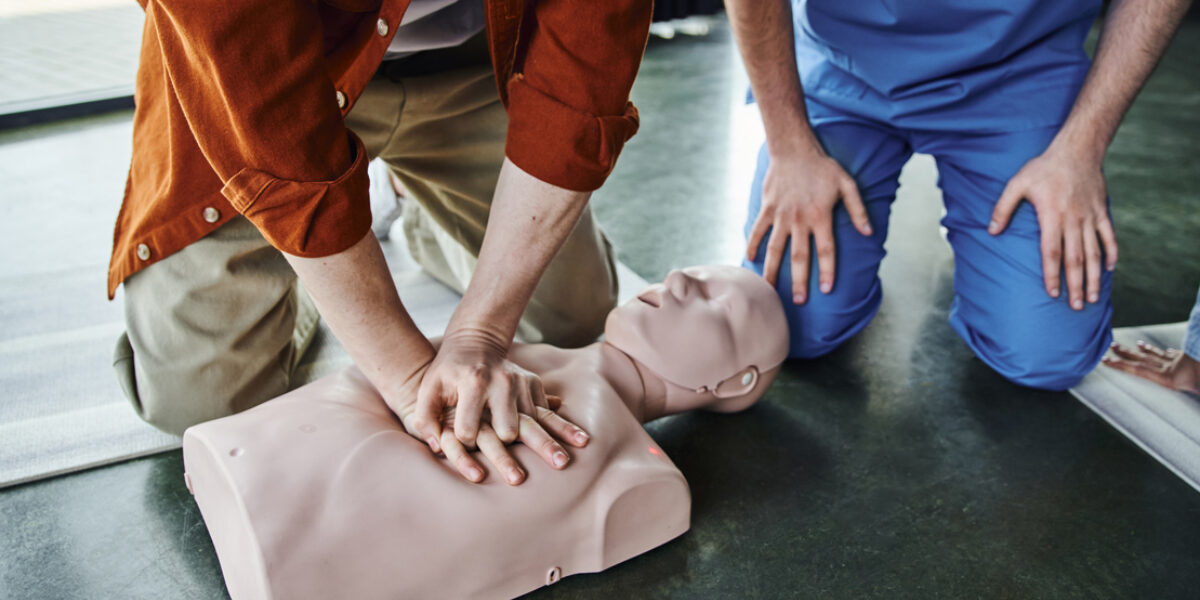Organizations have a legal obligation to provide a safe working environment for their employees. One way to elevate workplace safety is by training workers to perform CPR. Having CPR-certified employees can potentially save lives and boost overall team confidence. Here are a few benefits of CPR certification for workplace safety:
Saving Lives
CPR training and certification help various professionals learn life-saving skills. When administered correctly, CPR can increase the survival rate for individuals experiencing cardiac arrest. CPR-certified workers in the healthcare, education, and emergency service sectors may offer basic CPR until professional help arrives. They may administer a “hands-only” CPR that involves chest compressions to allow continuous blood flow to the organs. CPR certification also teaches workers how to offer rescue breaths, providing the affected individual with more oxygen to prevent brain damage.
The training program may include advanced CPR techniques, such as the use of automated external defibrillators (AEDs). Workers can use these medical devices to analyze a person’s heart rhythm during cardiac arrest. If necessary, workers will use the device to deliver an electric shock (defibrillation) to help restore a normal heartbeat. Besides training workers on AED use, a CPR course will also help individuals determine if an AED is needed.
Recognizing Emergencies
Workplace emergencies, like electrocution, drowning, and cardiac arrest, can occur at any time and often require immediate response. Having CPR-certified workers can be the difference between life and death during such emergencies. CPR-trained workers will recognize signs of various emergencies such as ineffective breathing, no pulse, and sudden collapse.
In the case of cardiac arrest, some people may experience early symptoms like dizziness, chest pain, and heart palpitations. Once these signs are identified, the CPR-certified worker will act right away by performing hands-only CPR. When a worker experiences heart palpitations or dizziness, they know to find a safe place to sit to avoid sudden collapse. They can also let a coworker know about the symptoms they are experiencing.
Increasing Skills
Workers in an organization may hesitate to perform CPR due to fear of making mistakes. This fear often stems from a lack of knowledge and skills needed to perform CPR during emergencies. With proper CPR training, workers act with confidence when handling life-threatening emergencies. The training program equips individuals with the knowledge they need to remain calm in high-pressure situations. Proper CPR training helps workers respond quickly to cardiac arrests, potentially helping to prevent unnecessary deaths.
Fostering Safety
CPR-trained and certified workers adopt proactive safety measures that prioritize the well-being of everyone in the organization. This approach starts with individual safety, encouraging workers to take ownership of their safety. It equips workers with a preventative mindset, allowing them to be vigilant and ready for emergencies. This allows employees to identify hazards and adhere to safety procedures.
A proactive safety culture can also help workers to observe the safety of coworkers and visitors. As a result, employees are more likely to participate in safety initiatives to prevent severe accidents. They may also report potential hazards, preventing injuries that could result from collapsing on concrete floors or machinery.
Reducing Recovery
An immediate reaction to workplace emergencies not only helps to save lives but may also reduce a patient’s recovery time. CPR will reduce the negative impact of a health emergency like cardiac arrest, especially when administered right away. It lessens the toll on a patient’s body, such as organ dysfunction and brain damage. When administered properly, CPR can quickly restore breathing and blood flow, leading to a faster recovery.
Choose a Quality CPR Certification Course
When it comes to workplace safety, CPR training and certification provide workers with lifesaving skills. These skills can help keep victims of health emergencies alive until professional assistance arrives. For better results, organizations should offer quality CPR courses from reputable institutions. Choose a quality CPR certification course today for your employees.


































Leave a Reply